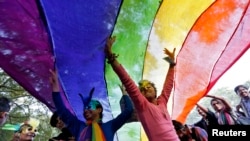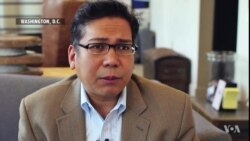Outside of the D.C. Center for the LGBT Community, an Asian woman waits in her car with her son — a middle-aged man who revealed he was gay more than a decade ago.
For a half hour on that Saturday, she refused to step inside the center, where parents of Asian and Pacific Island descent were convening to share their experiences raising children who are lesbian, gay, bisexual or transgender (LGBT).
Attempts by Glenn Magpantay, executive director of the National Queer Asian Pacific Islander Alliance (NQAPIA), and Manjula, the mother of a transgender child, failed to persuade the woman to join other parents seeking help in mending strained relationships with their children.
Compared with those in other ethnic groups in the U.S., Asian-American LGBT children face a greater risk of suicide, depression and drug abuse. The fear of causing shame and resentment to their families often creates barriers to dialogue and understanding.
Parents can play a vital role in supporting their children, but find that feelings of embarrassment and sadness often make it difficult to communicate.
"We can change that if we are supported and recognized for all of who we are," Magpantay said.
WATCH: Parents of transgender girl talk about road to acceptance
Saturday's event in Washington kicked off a series of "family acceptance workshops" held in 10 U.S. cities. For each event, NQAPIA partnered with local grass-roots organizations to recruit parents willing to be candid about the process of nurturing and accepting their own children.
Sharing the journey
Manjula and her husband, Balan, flew across the country from Washington state to participate in the D.C. workshop.
Without any guidance and support in their community, they have created their own method of coping. They have made mistakes, but were candid during the panel discussion.
Their transgender daughter's identity clashes with their faith and upbringing, and is in opposition to their family values.
Balan would often pressure his daughter into giving him answers she did not have, for questions he did not quite know how to ask.
"Now that I realize there are a lot more parents on the same journey, I feel it's nice to come out and share what we went through and hope that what we share also helps others," he said.
For an hour, the audience of parents and activists split into smaller huddles to share insights and feelings with others who could relate.
Although Manjula could not persuade the woman in the car to join the rest of the group, she was hopeful that if families can take this first step, Asian-American parents can better nurture their LGBT children.











